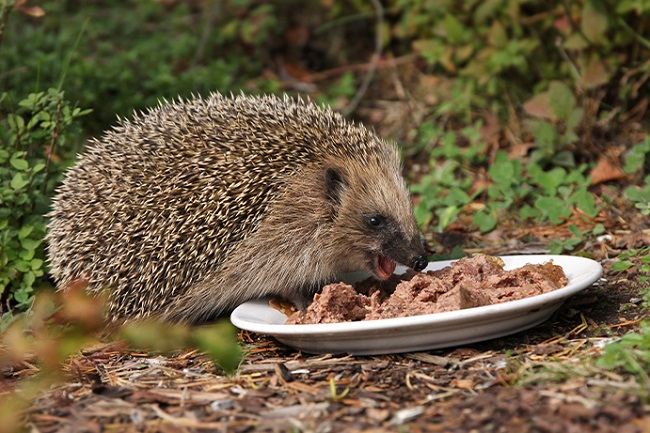When choosing a pet, most people opt for dogs, cats, or perhaps fish. However, there’s a whole world of exotic pets out there just waiting to be explored! One such pet that’s gaining popularity is the adorable and quirky hedgehog.
But one question that frequently crosses the mind of new hedgehog owners is, “What Does a Pet Hedgehog Eat?” This article explores the diet of a pet hedgehog, providing you with a comprehensive feeding guide to ensure your prickly pal remains healthy and happy.

Understanding a Hedgehog’s Natural Diet
In the wild, hedgehogs are primarily insectivores, consuming a diverse diet of insects, worms, snails, and other small critters.
Read Also:
They have a particular liking for protein-rich meals, but they’re opportunistic eaters and will indulge in a variety of fruits, vegetables, and even small vertebrates and eggs when available.
However, pet hedgehogs have a slightly different dietary need. Their captive lifestyle and the reduced need for foraging behaviors allow for a more varied diet, but the basic premise of high protein and low fat remains the same.
What Does a Pet Hedgehog Eat?
Your pet hedgehog’s diet should replicate their natural food habits as closely as possible, considering their captive environment. Here are the major components of a pet hedgehog’s diet:
Insect Protein: Crickets, mealworms, and wax worms are a staple in a pet hedgehog’s diet, providing essential proteins. These can be purchased live or canned from pet stores.
Commercial Hedgehog Food: Specialized hedgehog kibble is available in pet stores. These are designed to meet the nutritional needs of a hedgehog and often contain a blend of poultry, grains, and vegetables.
Fruits and Vegetables: A small portion of their diet can include fruits and vegetables. Apples, bananas, berries, carrots, and bell peppers are all safe options. Always serve these in small, manageable pieces to prevent choking.
Cooked Meats: Occasionally, you can offer cooked poultry like chicken or turkey. Avoid seasoning or frying these meats, as they can harm your pet.
Remember, every hedgehog is unique. Some may have different preferences or dietary needs. It’s crucial to monitor your pet’s reactions to different foods and adjust their diet accordingly.
Foods to Avoid
Certain foods are unsuitable for hedgehogs and can even be dangerous. Avoid feeding your pet hedgehog chocolate, onions, grapes, raisins, avocados, raw meat, dairy products, nuts, and seeds. Always consult a vet if you’re unsure about introducing a new food into their diet.
Essential Feeding Tips
Feeding your pet hedgehog isn’t just about what you feed them, but also how you do it. Here are some tips:
Maintain a Regular Feeding Schedule: Hedgehogs are nocturnal, so it’s best to feed them in the evening.
Portion Control: Overfeeding can lead to obesity. As a general rule, offer 1-2 tablespoons of food per meal.
Fresh Water: Always ensure your hedgehog has access to clean, fresh water.
Regular Vet Check-ups: Regular vet visits are essential to monitor your hedgehog’s weight and overall health.
Read Also:
- Morning After Pills For Dogs
- Old English Sheepdog Mix with Poodle
- English Bulldog Mix with American Bulldog
Conclusion
Caring for a pet hedgehog is a unique and rewarding experience. By understanding what a pet hedgehog eats and adopting a proper feeding routine, you can ensure your prickly pal enjoys a long, healthy, and happy life.
Remember, each hedgehog is unique, so always pay attention to their individual likes, dislikes, and dietary needs.
With a diet rich in proteins, balanced with the right amount of fruits and vegetables, your pet hedgehog can thrive in its captive environment.
By avoiding harmful foods and keeping a vigilant eye on their eating habits, you’re well on your way to becoming a hedgehog feeding expert!
























